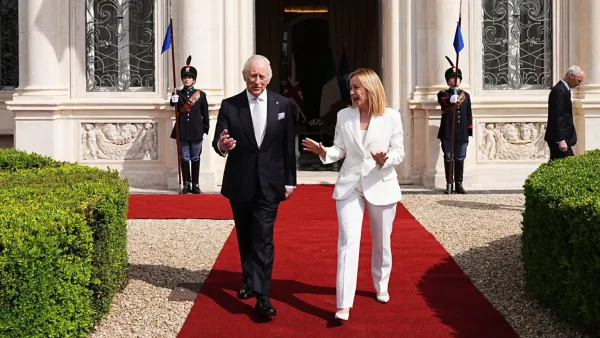Prince of Wales See How Text Service Provides Critical Mental Health Support for Youth

A groundbreaking mental health initiative that allows young people to seek help via text message has reached a significant milestone: three million conversations, with approximately 2,000 daily messages from those in crisis.
During a recent visit to the west London headquarters, the Prince of Wales witnessed firsthand how the Shout service operates around the clock, providing free text support to young people struggling with various issues, including suicidal ideation—particularly those who would hesitate to make a voice call for assistance.
The service responds to emergency messages, often expressed through emojis and abbreviated text language, frequently sent during late-night hours when distress peaks.
Ben West serves among the 2,000 volunteers answering texts to "Shout 85258." His dedication stems from personal tragedy—his brother Sam died by suicide in 2018.
"It's remarkable to be able to tell someone who's texting that they're not alone anymore," West explained. "We develop a plan together, spend time chatting, and help them regain control. I've had people share things they've never told anyone else. Being on the receiving end of that trust is truly an honor."
During his visit, Prince William engaged with West and other young advisors to the project, learning about their success in reaching youth who might otherwise avoid traditional mental health services.
"Young people strongly prefer text communication—it's their natural language," West noted. "They find texting far more accessible and less intimidating than phone conversations."
The text helpline launched in 2018 through Mental Health Innovations, a charity established by the Royal Foundation, reflecting the prince's ongoing commitment to mental health awareness. Prince William previously volunteered with the service during the COVID-19 pandemic after completing training, describing his initial shift as "terrifying."
"Some conversations stayed with me long afterward," the prince recalled. "You constantly question yourself: 'Did I provide enough support? Did I say the right things?'"
"This is more than just a text line—it saves lives," he emphasized. The prince learned that emergency services had directly intervened in 35,000 cases where individuals appeared to be in immediate danger.
The text-based format removes barriers for those already struggling to express their feelings. "Sam was deeply embarrassed about his depression diagnosis," West said of his brother. "For him, it felt like a personal flaw, something to conceal."
The service also reaches other vulnerable demographics who typically resist discussing their emotions, such as middle-aged men.
Victoria Hornby, CEO of Mental Health Innovations, noted a concerning trend in the "severity" of issues faced by those seeking assistance since the program's inception. Messages from individuals experiencing suicidal thoughts have increased from 25% to 37%.
Other common reasons for contacting the service include depression, anxiety, relationship difficulties, self-harm, isolation, and concerns about body image or sexual identity.
Hornby also highlighted a significant increase in help requests from children 13 and younger, potentially reflecting growing anxiety and pressure in young lives.
Sunday evenings represent the busiest period for the service, revealing the stress people feel before beginning a new week at school, university, or work.
"Text messaging offers privacy—you can't be overheard," Hornby explained. "For some, verbalizing extremely difficult thoughts can prevent them from seeking help."
The text service is now merging with another youth support organization called the Mix, with plans to expand into additional support services, including peer mentoring and counseling options.
Prince William emphasized the importance of continued support beyond initial contact and educational services to address problems before they escalate. "Prevention is crucial before situations deteriorate," he stated.
Research from Imperial College London suggests such digital platforms could help reduce mental health treatment waiting times, with current figures showing 1.5 million people awaiting care, including 100,000 children and young people.
The report indicated that two-thirds of those who contacted Shout experienced reduced anxiety following their interaction.
"We've saved lives, which is an incredible feeling," West reflected. "I only wish this service had existed when Sam needed it—someone like me to talk with. Had that been available, who knows what might have happened."





